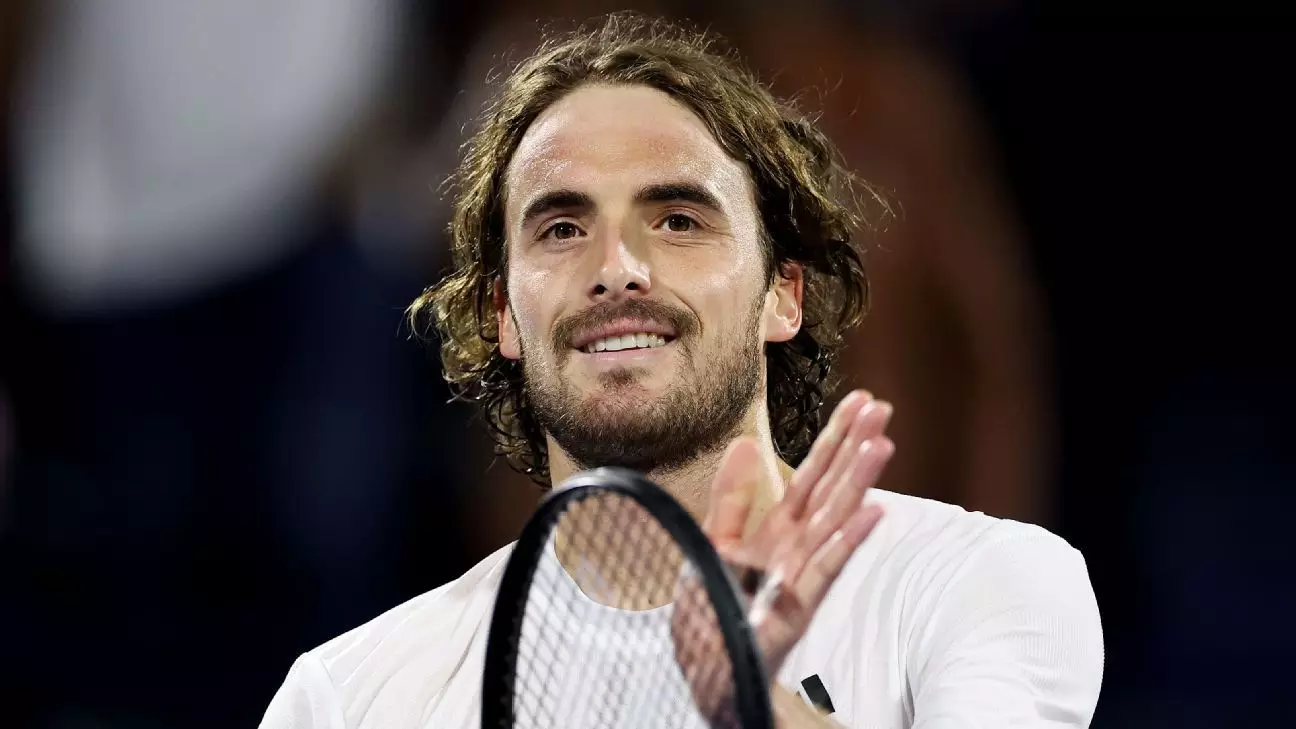In the high-stakes world of professional tennis, the importance of unwavering support can often be the defining factor between success and stagnation. Stefanos Tsitsipas’s decision to rehire his father, Apostolos, as his coach symbolizes a profound understanding of this truth. While many athletes rely heavily on external coaching and technical advice, Tsitsipas’s choice underscores the significance of personal trust and familial bonds in navigating the relentless pressures of elite sport.
This move can be viewed as a reclamation of identity and authenticity. Tsitsipas’s career has been marked by incredible highs—such as his French Open and Australian Open finals appearances—but also by recent struggles that have shaken his confidence and ranking. His brief collaboration with Goran Ivanisevic, a legend in his own right, seemingly failed to produce the results he sought. His recent form, falling to 30th in the rankings and failing to advance past the second round in recent Grand Slams, underscores a moment of vulnerability. Yet, it’s precisely in these low moments that returning to one’s roots can act as a catalyst for renewal.
The decision is not just about strategy but embodies a belief in emotional grounding. In a sport that often measures worth through rankings and titles, Tsitsipas’s choice highlights a different metric: loyalty, trust, and emotional resilience. Family support, especially from a figure intimately familiar with the athlete’s mind and spirit, can foster a sense of stability that external coaching sometimes can’t provide. It’s a testament to how personal relationships can be a source of formidable strength in times of adversity.
Challenging the Narrative: Rebuilding Through Authentic Connections
The widely discussed friction between Tsitsipas and his previous coach, Ivanisevic, suggests that success in tennis is not merely about technical adjustment but also about nuanced chemistry and personal harmony. Ivanisevic’s candid critique after Wimbledon about Tsitsipas’s lack of preparation reveals an underlying tension—perhaps a sign that external advice can sometimes clash with internal motivation and understanding.
Tsitsipas’s social media statement, emphasizing the return to his “first believer” and “the person who believed in me,” reflects a deep philosophical stance on what it takes to endure and thrive. It indicates a refusal to let external setbacks define his trajectory. Instead, he is choosing to focus on the foundational relationships that have historically propelled many great athletes to victory—not just on court but off it.
His acknowledgments suggest a broader perspective: that growth isn’t linear and setbacks are often necessary chapters for personal evolution. By reconnecting with his father, Tsitsipas may be laying the groundwork for a more authentic and sustainable approach to the game. This approach champions mental clarity, emotional honesty, and internal motivation—elements often overlooked amid the pursuit of titles but which are arguably vital for long-term success.
Is This a Turning Point or a Cautious Recalibration?
While some may see Tsitsipas’s family-centric strategy as a nostalgic retreat, a critical perspective reveals it to be a bold recalibration. His recent performances indicate a player at a crossroads—caught between potential and inconsistency. The return to his father’s guidance may serve as a reset button, giving him space to rediscover his love for the game and his unique style of play.
The athletic landscape increasingly values psychological resilience, emotional stability, and genuine passion. Tsitsipas’s move exemplifies a shift towards nurturing these qualities from within rather than solely relying on external validation. If he can integrate his familial support with modern training methodologies, he might unlock a new dimension of performance rooted in authenticity.
In the grand chessboard of tennis, resilience and genuine connections can often outweigh pure skill. Tsitsipas’s journey illustrates that sometimes, backward steps are necessary for forward leaps. Whether this emotional recalibration will translate into a more consistent, victorious phase remains to be seen, but it undeniably marks a confident assertion of self-belief—a vital trait in the relentless pursuit of greatness.

